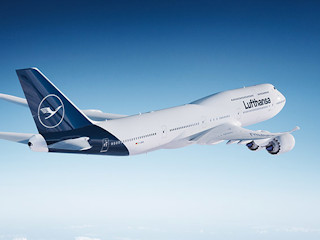3 Ways Hyatt is Disrupting the Hospitality Industry
June 07, 2016
Empathy is a hot topic in business right now. The less-than-sincere “it's not personal, it's business” line is no longer acceptable; in fact, it’s completely antiquated. Just last year an article from Harvard Business Review regarded empathy as “a hard skill that should be required from the board-room to the shop floor.” Hyatt is embracing this notion completely.
This May, Fortune Magazine's Susie Gharib interviewed Hyatt Hotels Corporation President and CEO Mark Hoplamazian in an article entitled The Secret Ingredient Behind Hyatt Hotels’ Success, where Mark explained his perspective on creating an authentic and human experience within the service industry. “Being able to connect with people and being able to really get into the essence of what their emotional experience is all about is essential to being successful” (Gharib, 2015). This mindset has been sewn into the fabric of Hyatt’s corporate culture; fake smiles and rehearsed lines are neither standard nor expected by management. Instead, employees are encouraged to be their true selves when working. The Hyatt approach to hospitality through humanization has even led to its recognition by Fortune as the 47th-best U.S. company to work for in 2016, further demonstrating that authenticity and empathy trump perfection. After all, happy employees equal happy customers.
This is where the customer journey starts for patrons of Hyatt. With a global hotel brand, asset management is an essential part of brand management and providing a seamless customer experience.
Hyatt’s Senior Vice President of Global Digital, Ellen Lee, explained that Hyatt is engaged in a customer’s journey “as soon as a customer starts dreaming about her vacation.” Most people begin their travel search and book online – with more than one in four travel bookings made via mobile device in the first quarter of 2016 (Criteo). In the predominantly digital search and evaluation stage of the purchasing journey, content is king. But not all hotels have effective asset management platforms, tools or the integrated technologies to support such platforms. “People were sending DVDs of photos to each other, emailing images, or uploading images one at a time to file-sharing services. We didn’t have an efficient way to manage and control activities,” said Frank Breithaupt, Director of eCommerce and Marketing Systems at Hyatt. (Hyatt Case Study, 2015).
Today, Hyatt has a centralized asset management process powered by Adobe Experience Manager Assets, along with a custom digital upload tool built by Valtech.
“Adobe Experience Manager Assets enable Hyatt to manage content in a centralized location to help ensure only current, approved content is used on websites, mobile apps, and on third-party travel sites,” said Joshua Young, VP Global Partner Alliance at Valtech.
At the recent Adobe EMEA Summit, Young presented on stage with Hyatt's SVP of Global Digital, Ellen Lee. Young emphasized the importance of understanding the customer journey to tailor experiences, noting that “There’s a marketing element to a lot of the systems that go into the Travel and Hospitality vertical. It takes integrations within the organization to work together, as well as from a system level to be able to get the right data and to then present it to an end user inside of marketing experience.”
For more on Adobe’s work with Hyatt, see the customer showcase video to hear Hyatt’s perspective on the value that the partnership with Valtech has brought the organization.
Video Quote: “We used Adobe’s partner, Valtech, to implement Adobe Experience Manager because we felt that we needed someone who really knew the tool inside and out” - Frank Breithaupt, Director of eCommerce and Marketing Systems, Hyatt.
About Hyatt
Hyatt Hotels Corporation, headquartered in Chicago, is a leading global hospitality company with a portfolio of 12 premier brands and 652 properties in 53 countries, as of March 31, 2016. The Company's purpose to care for people so they can be their best informs its business decisions and growth strategy and is intended to create value for shareholders, build relationships with guests and attract the best colleagues in the industry.





